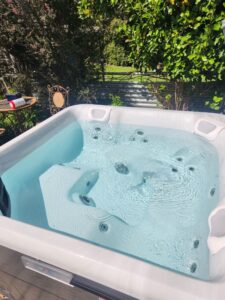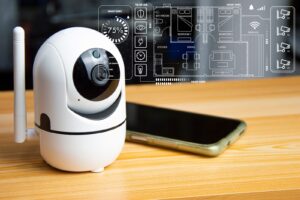In New Zealand, robust and reliable communication is the lifeblood of numerous industries, from the intricate coordination of construction projects and the vigilant operations of security services to the critical responses of emergency services. Hytera radios have emerged as a preferred choice for businesses and organisations seeking dependable two-way communication. However, navigating the legal intricacies surrounding their use is not merely advisable; it is a fundamental requirement.
This guide provides a comprehensive and detailed overview of Hytera radio licensing and regulations in New Zealand, empowering you to operate within the defined legal parameters.
Key Takeaways
Radio Spectrum Management (RSM) is the primary regulatory body for radio spectrum in New Zealand. The Radiocommunications Act 1989 governs the use of radio spectrum. Hytera radio users must understand frequency allocation and licensing requirements. Various types of licenses exist, including General User Radio Licenses and specific purpose licenses.
Compliance with regulations is vital to avoid penalties. Users should follow practical steps to determine license requirements and ensure compliance. Operating within the legal framework ensures reliable and interference-free communication with Hytera radios.
Licensing Bodies and Regulatory Framework
The cornerstone of radio spectrum management in New Zealand is Radio Spectrum Management (RSM), an integral branch of the Ministry of Business, Innovation and Employment (MBIE). RSM is entrusted with the critical responsibility of allocating and meticulously managing radio frequencies, ensuring efficient and interference-free communication across the nation. Their overarching role is to uphold the Radiocommunications Act 1989, the foundational legislation that governs all radio communications within the country.
The Radiocommunications Act 1989 meticulously sets out the rules and regulations for utilising radio frequencies, including the mandatory requirement for licenses in most cases. It is crucial to understand that this Act applies universally to all radio devices, including Hytera radios. It comprehensively details the powers of RSM to regulate, conduct thorough investigations, and rigorously enforce compliance. In essence, this Act serves as the definitive rulebook for radio communication in New Zealand.
Beyond the core Act, a multitude of supplementary regulations and technical standards apply to radio equipment and operational procedures. These may encompass specific technical standards for equipment performance, detailed guidelines for frequency utilisation within particular industry sectors, and stringent rules regarding the mitigation of radio interference. Staying consistently updated on these evolving regulations is of paramount importance for any Hytera radio user seeking to maintain legal compliance.
Frequency Allocation for Hytera Radios
Hytera radios, like all other two-way communication devices, operate on precisely designated frequency bands. In New Zealand, these bands are meticulously allocated by RSM. A thorough understanding of frequency allocation is crucial for ensuring that your Hytera radios operate legally and without causing disruptive interference to other authorised users.
Common frequency bands employed for two-way radios include VHF (Very High Frequency) and UHF (Ultra High Frequency). Each band possesses distinct characteristics, with VHF generally providing extended range in open, unobstructed areas and UHF offering superior penetration in densely populated, built-up environments. Hytera radios are meticulously engineered to operate within these allocated bands, guaranteeing compatibility with New Zealand’s established radio spectrum.
It is important to clearly differentiate between licensed and unlicensed frequency bands. Unlicensed bands, such as those utilised by certain low-power devices, allow for free usage without the necessity of obtaining a specific license. However, licensed bands require a formal license from RSM. Licensed bands offer enhanced control over frequency usage and significantly reduce the potential for disruptive interference. Hytera radios may operate on either licensed or unlicensed bands, contingent upon the specific model and its intended application.
Hytera radios are meticulously designed and engineered to operate within the precise frequency parameters established by RSM. Hytera provides comprehensive technical specifications for their radios, clearly outlining the frequency bands they support. It is of vital importance to ensure that your Hytera radios are correctly programmed to operate within the allocated frequencies for your specific application, thereby ensuring legal compliance and optimal performance.
Types of Radio Licenses in New Zealand
RSM offers a diverse range of radio licenses to effectively cater to the varied needs of different users. The General User Radio License (GURL) is a commonly utilised license that permits the use of specified frequencies under clearly defined conditions. The GURL is particularly suitable for many Hytera radio users, especially those within businesses that require fundamental two-way communication capabilities.
Specific purpose licenses are made available for industries with specialised and often mission-critical communication requirements. These licenses cater to sectors such as security, construction, and emergency services. They typically provide access to specific, often protected frequencies and may include additional stringent conditions. The application process for these specialised licenses involves demonstrating a clear and justifiable need for the specific frequencies and complying with all relevant industry standards.
Temporary event licenses are available for short-term events that necessitate temporary radio communication capabilities. These licenses grant temporary access to specific frequencies for the duration of the event. Whether it is a large-scale concert, a major sports event, or a significant public gathering, temporary event licenses ensure organised and legally compliant radio communication.
Compliance and Enforcement
Compliance with all applicable radio regulations is not merely a suggestion; it is a legal imperative. RSM actively monitors radio spectrum usage and rigorously enforces compliance. Non-compliance can result in severe penalties, including substantial fines, the confiscation of equipment, and even potential legal prosecution. It is absolutely critical to thoroughly understand and strictly adhere to all relevant regulations to avoid these potentially serious consequences.
Penalties for non-compliance are explicitly outlined in the Radiocommunications Act 1989. They can range from formal warnings and infringement notices to full-scale prosecution and substantial financial fines. The severity of the penalty is determined by the nature and extent of the violation.
Equipment standards are also of paramount importance for ensuring compliance. Hytera radios, like all other radio communication devices, must meet New Zealand’s stringent technical standards. These standards are designed to ensure that equipment operates safely and efficiently, minimising the potential for harmful interference and ensuring seamless compatibility with the established radio spectrum.
Practical Steps for Hytera Radio Users
Determining the appropriate license for your specific Hytera radio usage is the crucial first step towards ensuring full compliance. RSM provides comprehensive guidelines and a wealth of resources to assist you in accurately determining your licensing requirements. You can access these resources on the RSM website or contact their knowledgeable support team for personalised assistance.
Applying for a radio license is a straightforward and streamlined process. RSM provides a user-friendly online licensing portal where you can conveniently apply for a wide range of license types. The application process typically involves providing detailed information about your radio equipment, intended frequency usage, and accurate contact information.
Ensuring ongoing compliance is an ongoing responsibility that requires consistent vigilance. Regularly review your license conditions and stay informed about any updates or changes to relevant regulations. Maintain meticulously accurate records of your radio equipment and licenses. Adhere strictly to the frequency usage guidelines and take proactive measures to avoid causing any interference to other authorised users.
ALSO READ: How To Choose The Right Alarm System And Home Security Monitoring Combination











